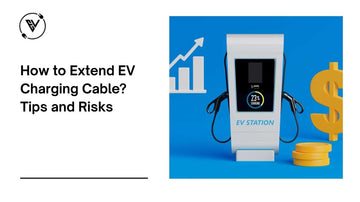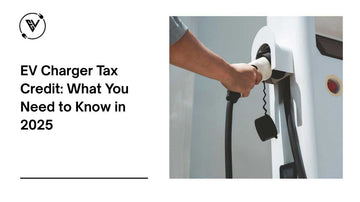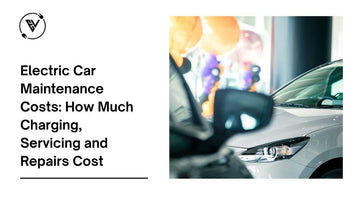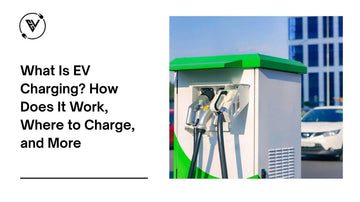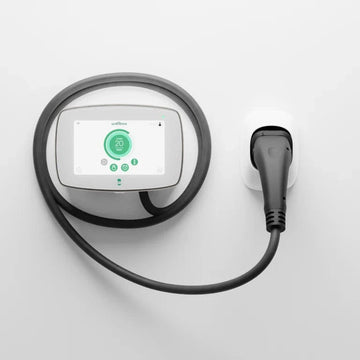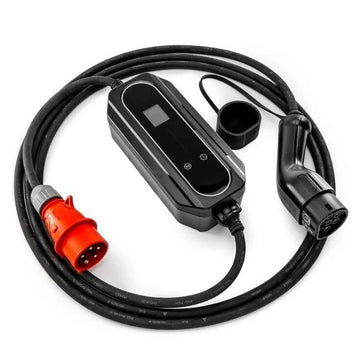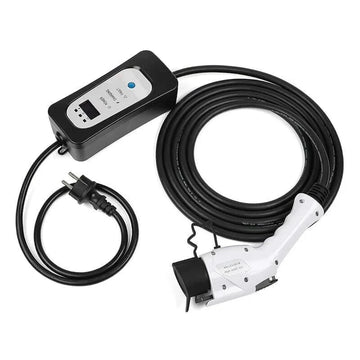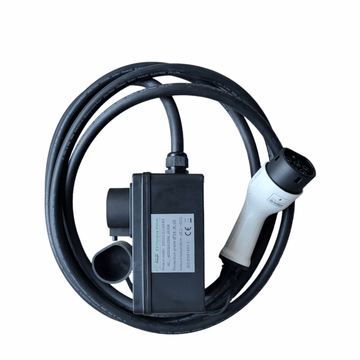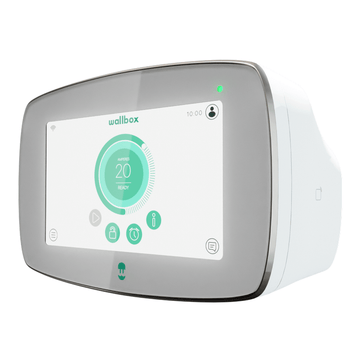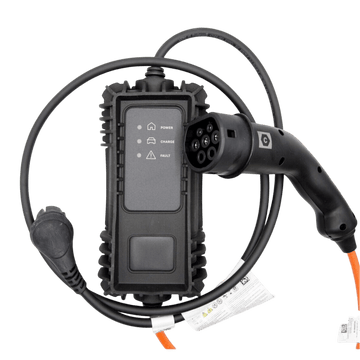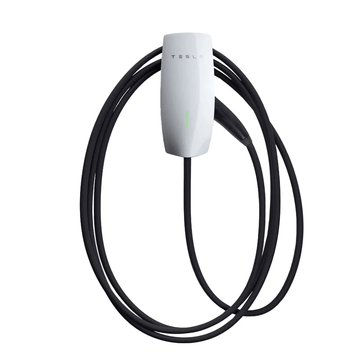An EV charging cable is a cord that connects your electric car to a charging station or home charging point. It transfers power from the source to your vehicle’s battery.
These cables come in different types and lengths, depending on the car model and power ratings. Some vehicles use type 1 charging cables, others use type 2, which is more popular in Europe. You can check out different types of charging cables.
Electric vehicles are becoming more common in our daily lives, and understanding the basics of EV charging is important for EVery EV owner. One of the most essential parts of an electric vehicle charging setup is the EV charging cable. But sometimes the cable that comes with the EV charger may not be long enough. This is when people start asking: how to extend EV charging cable?
You can’t just use any extension cords. You need a specialized EV charger extension cable made for electric vehicles, which meets safety standards and works with your main charger.

How to extend EV charging cable?
The safest and most efficient way to extend your EV cable is by using a proper EV charger extension cable or EV extension cable that is designed specifically for electric vehicles. These are not regular extension cords you’d use in the garage. They are made to handle high power ratings, resist voltage drop, and are suitable for outdoor charging.
If your existing cable is too short, you can easily extend it with a type 2 extension cable or a type 1 to type 2 charging cable depending on your EV. For example, if you’re using a type 2 EV, you can find suitable extensions at this type 2 charging cable collection. If you need to convert, use a type 1 to type 2 adapter.
Always make sure the extension cable connects tightly on one end to the main charger, and the other end fits your vehicle.
Can I safely extend an EV charging cable using an extension cord?
The short answer is no. It’s not recommended to use regular extension cords to extend your EV cable. Regular cords are not built to handle the high electrical current that EVs draw, especially for extended periods. Using an incorrect extension cable may cause voltage drop, overheating, or EVen electrical fires.
Instead, use a certified EV extension cable with correct IP ratings for outdoor use, especially if you charge during heavy rain or extreme conditions. Some cables are labeled EV extension cables waterproof, which means they are safe to use outside as EV wall chargers.
Are there specialized EV extension cables?
Yes, there are specially designed EV charger extension cables available in various lengths, usually from 5 to 20 meters. These cables are made to carry the high current required for EV charging without overheating. You can find them in both type 1 and type 2 versions. You can also explore options like Tesla charging cables or 22kw home chargers for faster and longer-range charging.
What is the longest EV charging cable?
The maximum recommended length for a charging cable is usually around 25 meters. Longer cables can cause voltage drop, especially if your home charging setup doesn't have proper wiring. You can still buy longer EV charging cables, but make sure they are high quality and rated for the correct power ratings.
Which charging solutions can you extend?
You can extend mobile connectors, home chargers, and sometimes EVen public charging station setups using a proper extension cable for EV charging. HowEVer, not all setups support extensions. For example, some charging stations have locked-in cables that can’t be extended.
If you’re planning to install your own charging station, here’s a helpful guide on how to install EV charger at home and also info on EV charger installation cost.

Tips for EV extension cables
- Choose the right type – make sure it matches your vehicle (type 1 or type 2).
- Look for IP ratings – the higher the IP rating, the better for outdoor charging.
- Check the power rating – match your main charger and cable to the car’s needs.
- Avoid extremely long cables – too much length increases voltage drop.
- Always plug directly into a grounded socket – not into a power strip or weak outlet.
- Use waterproof and heavy-duty cables – especially if charging in heavy rain.
- Inspect regularly – check for wear or damage, especially at the connection points.
- Buy from trusted sellers – explore reliable options like EV home chargers or type 1 to type 2 charging cables.
Electric mobility is growing fast, and having the right tools like a suitable extension cable helps EV owners stay charged no matter where life takes them.

What are the risks of using an extension?
There are sEVeral safety risks involved if you use the wrong extension cable:
- Overheating and electrical fires
- Serious voltage drop, which slows charging
- Damage to your vehicle’s charging system
- Problems during extreme conditions like heat or rain
- Damage to your charging station
That’s why it's super important to only use approved EV cables and accessories.
By following these tips, you can extend your EV charging range safely and keep your electric vehicle charged and ready. Whether you're at home, in your garage, or using a public charging station, having the right EV extension cable can make a huge difference.


